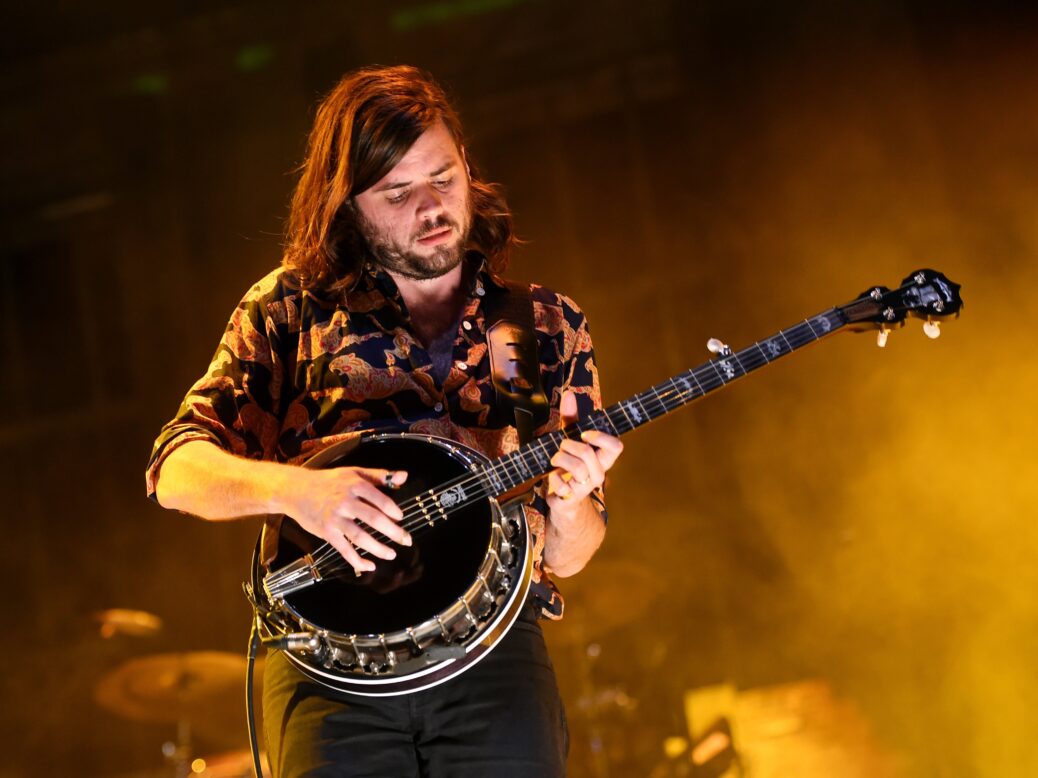
Whenever “cancel culture” is discussed, sceptics often say “show me the list”. They argue that few people are actually ever “cancelled”, and those who are probably deserve it, or simply use their cancellation to promote themselves on another platform.
But what those who deny cancel culture don’t realise is that wishing to tear people down for what they say is far more pervasive and wide-reaching than demands for academics to lose their speaking gigs. Cancel culture is merely the snappier, modern name for a sentiment that has been brewing for 20 years, exacerbated by the heady toxicity of social media: that the opinions people put forward in debate should leave them open to being socially, financially and emotionally ostracised.
There’s a more insidious side to this culture, beyond social media pile-ons or outraged newspaper headlines: the quiet power of self-censorship. Take the case of Winston Marshall, former banjo player for British band Mumford & Sons, whose twangy folk-rock dominated the UK charts in the late Noughties. In an unusual blog post, published yesterday, Marshall explained why he is reluctantly leaving the band – all because, in early March, he tweeted in support of political journalist Andy Ngo’s book on Antifa, Unmasked. “I failed to foresee that my commenting on a book critical of the Far-Left could be interpreted as approval of the equally abhorrent Far-Right,” Marshall wrote. He explains he is leaving Mumford & Sons so he can continue to comment without fear of bringing down the ire of Twitter onto the heads of his bandmates: “I could remain and continue to self-censor,” he says, “but it will erode my sense of integrity.”
[see also: How Suzanne Moore split the Guardian]
Given all this fuss, you’d be forgiven for thinking that Marshall had announced a new folk band with Tommy Robinson on the maracas. Far from it. For those of us on the left who fail to be incensed (but are, most of the time, rather embarrassed) by the shenanigans of “black bloc” Antifa activists (those who wear black clothes and masks), Ngo’s commentary seems eye-rollingly alarmist with its arguments about the interchangeability between far-left and far-right nutters. (Just because they both go around throwing milkshakes at each other, doesn’t mean they’re the same.) But Ngo’s book is hardly the far-right threat it’s made out to be.
Besides, there’s nothing duller in politics than someone who sits on the fence – and in tweeting support for Ngo’s panicky book about Antifa violence, all Marshall did was out himself as a liberal. In his own words, “I flutter between ‘centrist’, ‘liberal’ or the more honest ‘bit this, bit that’.” How shocking.
If I were being unkind, I’d say that Marshall – and, more importantly, his bandmates – were being more than a little cowardly in balking at a bit of Twitter outrage. Mumford & Sons is founded and led by the son of evangelical Christians. They sing about love and spirituality: they’re holier-than-thou. Their songs are so wholesome it makes you jump every time Marcus Mumford swears in his booming Wimbledon accent. I’d be surprised if the Richmond mums and folk-loving teens who make up their huge and loyal fan base would be swayed by a bunch of annoyed lefties on Twitter. Marshall should feel free to speak his mind and play beautiful music – Nick Cave manages it.
Perhaps it’s more generous to see Marshall’s decision to quit the band he loves in order to freely express his opinions as evidence of the threat cancel culture poses, even to those with the resources of international stardom. We should care about Marshall’s decision not because the move will be particularly devastating for his career, but because there are countless other Marshalls out there without his resources who will have to live with the gnawing feeling that he describes.
If we continue to nurture a culture that prevents free and open political debate, tolerant, freedom-loving and progressive views will suffer. Those who are hell-bent on silencing far-right or even mildly conservative views seem to have forgotten what effect censorship has had on fringe views throughout history. We should never be so arrogant as to believe that we have all the answers – freedom of speech and debating ideas is the lifeblood of any democratic society. Perhaps we need more people like Marshall who are willing to speak their minds. Even better, we could do with someone with real guts, who refuses to apologise or bow down to this assault on public debate.
[see also: This book has been cancelled]






